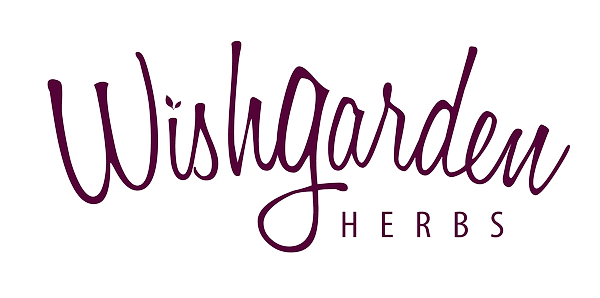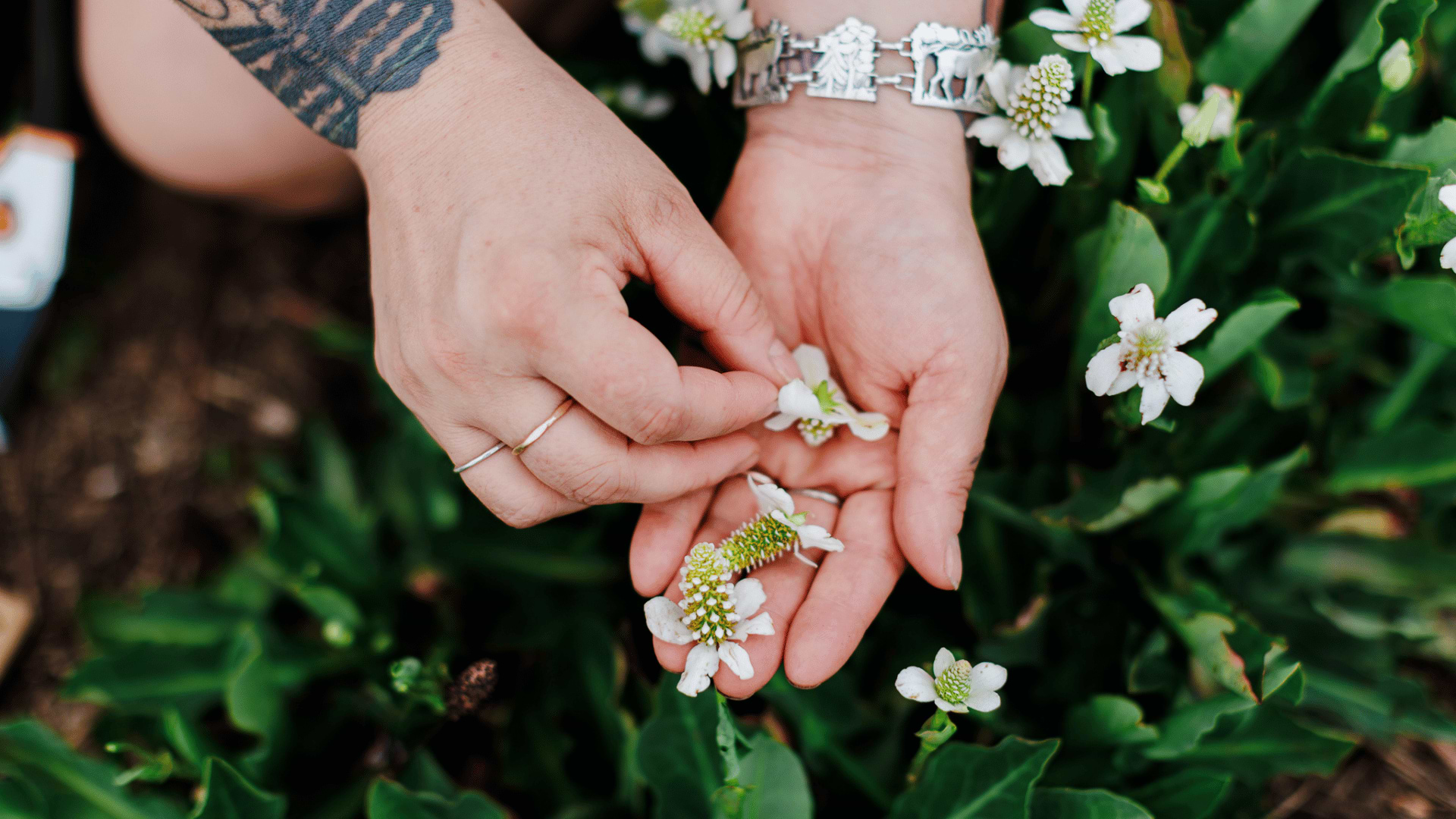
5 Essential Herbalism Books: From Herb-Curious to Herb-Confident
Written by Rebecca Younger, CH, CDShare
Curious about taking your herbal knowledge further? Books are one of the best ways to deepen your connection with medicinal plants, whether you’re just starting to explore or already weaving herbs into daily life. The right ones can offer clarity, guidance, and wisdom that goes far beyond quick online searches.
We’ve gathered five essential titles that consistently show up on herb school syllabi, practitioners’ desks, and home bookshelves alike. These are the trusted resources that help transform curiosity into confidence and turn plant passion into real, rooted understanding.
Why These Five Books Work Together
These books come together as an herbalism dream team, designed to help inspire your own creations of herbal remedies, educate on uses and safety, and each covering essential skills that build on each other:
- They build practical skills (growing, making, and using medicine).
- They teach plant identification and safety.
- They offer systems-based thinking for root-cause herbalism.
- They provide scientific foundations so you understand why herbs work.
- They teach medicine-making methods from kitchen-friendly to professional.
Together, these five books take you from herb-curious to herb-competent, equipping you with the knowledge needed to create your own natural remedies — building the plant knowledge, scientific understanding, practical skills, and holistic thinking that form the foundation of professional herbalism practice.
The Books
1. Rosemary Gladstar's Medicinal Herbs: A Beginner's Guide: 33 Healing Herbs to Know, Grow, and Use
About This Book: When the "godmother of American herbalism" writes a beginner's guide, you can't miss it. Gladstar breaks down 33 essential herbs with the warmth of your favorite herbal auntie, covering everything from growing them in your backyard to making your own tinctures and salves. This isn't just about identification; it's about incorporating these plants into your daily wellness routine. Think gorgeous photos, step-by-step remedy instructions, and decades of hands-on plant wisdom.
The Love
- Perfect beginner balance; not too simple, not too overwhelming.
- Beautiful full-color photos make plant ID actually doable.
- Rosemary's teaching style feels like learning from a trusted mentor.
The Real Talk
- Covers only 33 herbs, so you'll want more books eventually.
- More focused on common herbs than exotic healing plants.
Perfect For: Herb newbies who want to start with the essentials, gardeners ready to grow their own medicine, and visual learners who appreciate encouraging guidance.
Bottom Line: It's the herb book that makes you feel confident enough to actually start making herbal treatments instead of just reading about them.
2. Botany in a Day by Thomas J. Elpel
About This Book: You don't need years to learn plant identification. This book teaches you to recognize eight major plant families, which encompass over 45,000 species, by using pattern recognition rather than memorizing individual plants. Elpel's approach is practical and effective — related plants often look similar and share traits, so learning family patterns speeds up safe plant ID.
The Love
- Makes plant ID actually fun and doable with no PhD required.
- The pattern method works in many regions — readers use it worldwide.
- Used as a textbook in universities and herbal schools because it actually works.
The Real Talk
- That "one day" title? It takes longer if you want mastery.
- Older black-and-white editions were harder to learn from — spring for the color version.
Perfect For: Herb nerds who want to level up plant ID, foragers seeking confidence, and anyone curious about botanical patterns.
Bottom Line: It's the plant ID book that makes you feel like you have botanical superpowers, even if it takes study time to master.
Get It: https://www.wishgardenherbs.com/products/botany-in-a-day
3. Body Into Balance: An Herbal Guide to Holistic Self-Care by Maria Noël Groves
About This Book: Groves organizes herbal healing around body systems and common health concerns. Rather than simply listing herbs, she teaches you how to think like an herbalist — reading body signals, identifying root causes, and building personalized routines. This book blends herbal medicine with lifestyle wisdom and thoughtful practice.
The Love
- Teaches systems-based thinking about health, not just symptom-matching.
- Excellent balance of herbal practice and practical applications.
- Used as a core textbook in many herb schools.
The Real Talk
- Dense with information — not a quick weekend read.
- Better suited for intermediate learners than absolute beginners.
Perfect For: People who want to understand "why" behind health issues, herb students ready for systems-based approaches, and anyone tired of quick fixes.
Bottom Line: It's the book that teaches you to be your own herbalist instead of just following recipes.
Get It: https://www.wishgardenherbs.com/products/body-into-balance-an-herbal-guide-to-holistic-self-care
4. Medical Herbalism: The Science and Practice of Herbal Medicine by David Hoffmann
About This Book: The heavy-hitter textbook for serious students. Hoffmann dives into plant biochemistry, dosage, safety protocols, and clinical applications. This is where herbalism meets rigorous science — ideal for practitioners and those who want evidence-backed understanding.
The Love
- Makes herbal science accessible without requiring a science degree.
- Comprehensive coverage of 150+ herbs with clinical detail.
- Considered a gold standard textbook in herbal schools worldwide.
The Real Talk
- Graduate-level material — beginners may find it dense.
- Requires serious study time to get the most from it.
Perfect For: Serious herbal students, clinicians adding herbs to practice, and anyone who needs to know the "why" behind herbal recommendations.
Bottom Line: It's the textbook that turns enthusiasts into knowledgeable practitioners, but it's not light reading.
5. The Modern Herbal Dispensatory: A Medicine-Making Guide by Steven Horne and Thomas Easley
About This Book: This guide transforms a kitchen into a proper herbal pharmacy. Horne and Easley cover 250+ plants and walk you through everything from basic tinctures to advanced extraction methods (including percolation and Soxhlet). It includes the practical recipes and the chemistry behind extraction choices.
The Love
- Covers every extraction method you might want to try.
- Professional-level information presented in an accessible way.
- An indispensable reference you'll return to again and again.
The Real Talk
- Can feel overwhelming for absolute beginners.
- Some advanced techniques require specialized equipment.
Perfect For: DIY medicine makers ready to level up, herbalists building a home apothecary, and anyone who wants the "how" and the "why" for medicine-making.
Bottom Line: It's the comprehensive guide that turns home herbalists into confident medicine makers.
Get It: https://www.wishgardenherbs.com/products/the-modern-herbal-dispensatory-a-medicine-making-guide
Your Herbalism Adventure Starts Now
These five books aren't just reading material; they're mentors, reference guides, and confidence builders. Start with Rosemary's gentle guidance, master Elpel's plant ID approach, dive into Maria's systems thinking, geek out over David's biochemistry, and level up your medicine-making with Horne and Easley.
By the time you've worked through these books — and yes, we said worked because this is active study — you'll have plant knowledge, scientific understanding, and practical skills that separate dedicated herbalists from weekend dabblers.
Tip: Read intentionally: try applying one skill or recipe from each book as you go. Practical application will cement learning faster than passive reading.
The plant world is waiting for you!
Rebecca Younger is passionate about herbs and women's health. She aspires to plant seeds of inspiration within her community about plant medicine and healthier ways of life. She studied Herbal Medicine at Herbalism Roots in Denver and is a certified Doula through the Matrona Foundation. She is the Brand Communications Specialist at WishGarden Herbs.
For educational purposes only. This information has not been evaluated by the Food and Drug Administration. This information is not intended to diagnose, treat, cure, or prevent any disease, or to sell any product.















